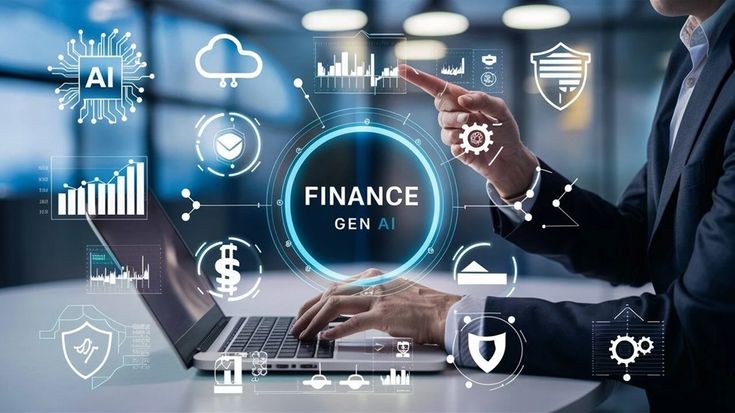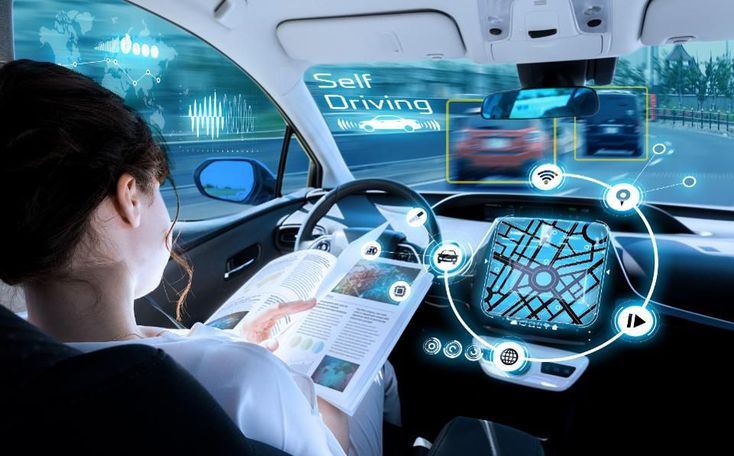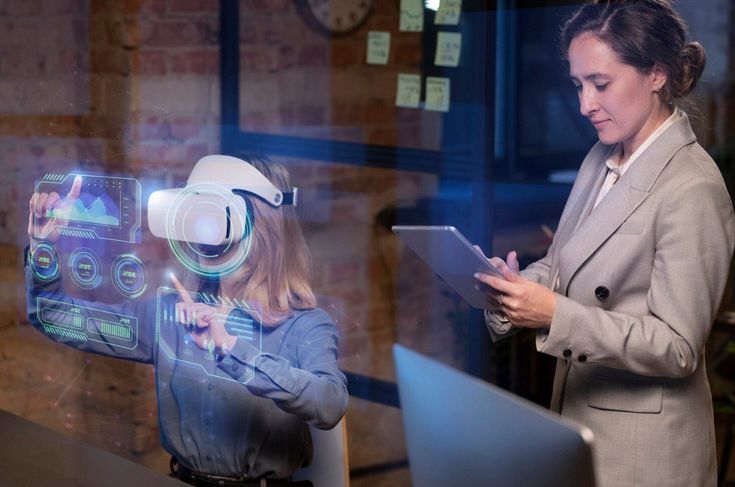Artificial Intelligence (AI) has evolved from a futuristic concept into an integral part of our daily lives. From personalized recommendations on streaming platforms to intelligent virtual assistants and autonomous vehicles, AI is revolutionizing the way we interact with technology. The impact of AI spans multiple industries, enhancing efficiency, improving convenience, and solving complex problems that were once beyond human capabilities. AI-driven automation is streamlining workflows, reducing human effort, and allowing businesses to operate more effectively. As AI continues to advance, its influence is becoming increasingly prominent across various sectors, reshaping society in ways that were once unimaginable. However, with this rapid growth, it is crucial to understand both the opportunities and challenges that AI presents, including ethical concerns and its impact on employment and privacy.
AI in Communication and Entertainment
AI has transformed communication through chatbots, virtual assistants like Siri and Alexa, and real-time language translation tools. These advancements make it easier for people to connect across different languages and geographies, fostering global collaboration and accessibility. AI-powered chatbots are now used by businesses for customer service, providing instant responses and resolving queries without human intervention, leading to improved efficiency and reduced costs. AI is also being utilized in sentiment analysis, helping companies gauge public opinion by analyzing social media posts, reviews, and feedback.
In entertainment, streaming services like Netflix, YouTube, and Spotify leverage AI-driven algorithms to analyze user preferences and viewing history to curate personalized content, enhancing user experience and engagement. AI also plays a significant role in content creation, with tools capable of generating music, writing scripts, and even creating deepfake videos that mimic real people. Additionally, AI-driven virtual influencers and AI-generated characters are being used in marketing campaigns, entertainment media, and video games, reshaping how content is created and consumed.

AI in Healthcare
The healthcare sector has seen remarkable improvements with the integration of AI. From early disease detection to robotic-assisted surgeries, AI is improving diagnostic accuracy and patient outcomes. Machine learning models analyze vast amounts of medical data to identify patterns, helping doctors make better-informed decisions. For instance, AI-powered imaging systems can detect abnormalities in X-rays and MRIs with higher precision than human radiologists. AI has also been instrumental in the fight against pandemics, with predictive models forecasting the spread of diseases and helping governments take proactive measures.
Additionally, AI-powered chatbots and virtual health assistants provide instant medical advice, reducing the burden on healthcare professionals. Telemedicine, enhanced by AI, has made healthcare more accessible, allowing patients to consult doctors remotely, especially in underserved regions. AI-driven drug discovery is accelerating the development of new medicines, making treatments more efficient and cost-effective. Personalized medicine, where AI analyzes genetic data to tailor treatments for individual patients, is also on the rise, leading to more effective therapies with fewer side effects.
AI in Finance

Financial institutions are leveraging AI for fraud detection, risk assessment, and automated trading. AI-driven chatbots assist customers with banking queries, while robo-advisors provide personalized investment recommendations by analyzing market trends and user financial goals. With AI-powered predictive analytics, businesses and individuals can make more informed financial decisions, ensuring greater security and efficiency.
AI is also helping banks detect fraudulent transactions in real time by monitoring suspicious activities and preventing financial crimes. Credit scoring models powered by AI offer fairer and more accurate assessments of borrowers, helping more people access financial services. Additionally, AI-powered automation in accounting and auditing reduces errors, increases transparency, and ensures compliance with regulations. The integration of AI in decentralized finance (DeFi) and blockchain-based transactions is also changing the financial landscape, providing greater security and efficiency.
AI in Transportation

The transportation industry is undergoing a massive transformation with AI-powered innovations. Self-driving cars, powered by AI and machine learning, are reducing accidents and improving traffic management by predicting congestion and optimizing routes. Companies like Tesla, Waymo, and Uber are investing heavily in autonomous vehicles that aim to make transportation safer and more efficient. Ride-hailing services like Uber and Lyft use AI algorithms to analyze traffic patterns, optimize pricing, and provide real-time ETAs to users.
AI is also streamlining logistics and supply chain management, making deliveries faster and more efficient. Smart traffic management systems leverage AI to control traffic lights and reduce congestion, leading to lower emissions and improved urban mobility. Additionally, AI-driven predictive maintenance in aviation and railways enhances safety by identifying potential failures before they occur. AI-powered drones are being used for last-mile deliveries, emergency response, and infrastructure inspections, further improving efficiency in the transportation sector.
AI in Education

AI is revolutionizing the education sector by providing personalized learning experiences. Adaptive learning platforms use AI to analyze student performance and tailor educational content accordingly, ensuring that each student learns at their own pace. AI is also being used in language learning apps, providing real-time feedback and adaptive learning modules. Virtual tutors and AI-driven grading systems are enhancing the efficiency of teachers, allowing them to focus on more interactive and engaging teaching methods.
AI-powered tools such as Grammarly and Turnitin assist students with writing and plagiarism detection, improving academic integrity. Additionally, AI-driven chatbots help students with coursework and administrative queries, making education more accessible. AI is also being used in exam proctoring to detect cheating behaviors, ensuring fair assessments. As AI continues to develop, its role in online education and remote learning will become even more significant, breaking barriers to education across the globe. AI-powered simulations and virtual reality tools are also being integrated into training programs, providing hands-on learning experiences in fields like medicine, engineering, and aviation.
The Ethical Considerations of AI
Despite its numerous benefits, AI comes with ethical challenges. Issues such as data privacy, bias in AI algorithms, and job displacement due to automation raise concerns that need to be addressed. Many AI models are trained on biased datasets, leading to unfair treatment of certain groups in hiring processes, law enforcement, and financial lending. Ensuring transparency, accountability, and ethical AI development is crucial to maximizing its positive impact on society while mitigating potential risks.
Governments and tech companies must establish regulations to prevent misuse and ensure that AI benefits everyone. AI’s impact on employment must be managed by upskilling the workforce and preparing for a future where human-AI collaboration is the norm rather than a threat. Ethical AI frameworks, such as explainable AI (XAI), are being developed to ensure that AI systems make fair and understandable decisions. The debate over AI-generated deepfake technology also raises concerns about misinformation, digital identity theft, and the erosion of trust in digital content.
Conclusion
AI is undeniably reshaping society, influencing nearly every aspect of our lives. As AI continues to evolve, its potential to improve efficiency, enhance convenience, and solve complex problems will only grow. From healthcare to finance, transportation to education, AI is driving significant advancements that benefit individuals and businesses alike. However, it is essential to strike a balance between innovation and ethical considerations to ensure that AI serves humanity in a responsible and beneficial manner.
The future of AI is bright, and its continued integration into everyday life promises to bring even more groundbreaking advancements. As AI continues to expand its reach, society must work together to harness its power for good while addressing its challenges to create a better, more inclusive future. Policymakers, industry leaders, and researchers must collaborate to ensure AI develops in a way that benefits everyone, fostering a future where AI is used responsibly, ethically, and equitably.
Read more: https://ciovisionaries.com/articles-press-release/

